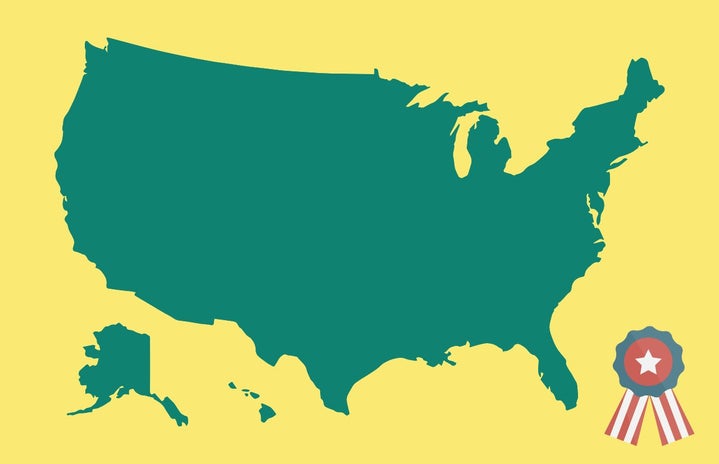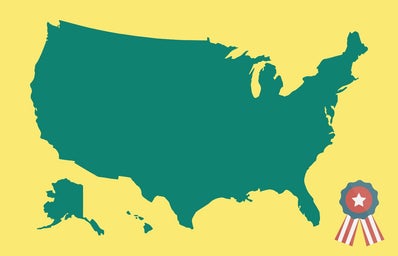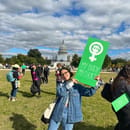This year’s presidential election race was messy and had everyone holding their breath. There was a lot of coverage and minute by minute updates for days. Everyone primarily focused on the presidential race, which is understandable. Not a lot of focus is placed on the record-setting number of BIPOC and LGBTQ+ candidates, however, that ran for state and local government. Today, I would like to introduce you to some of those major election winners that are making history.
- Sarah McBride
-
First up, we have Sarah McBride, who became the nation’s first openly Transgender State Senator after winning the state senate race in Delaware’s District 1. A trans activist, a champion for gender equality, and spokesperson for the Human Rights Campaign, McBride is set to make a difference in government. In 2012, McBride became the first openly transgender White House intern under Barack Obama’s presidency. During her time at the White House, McBride worked on LGBTQ+ issues. In 2013, McBride joined the board of directors of Equality Delaware and lobbied the Delaware General Assembly to pass state legislation that banned gender identity discrimination and advocated for legal protections for transgender Delawareans. In 2016, McBride was the first openly transgender person to address the Democratic National Convention, where she once again cemented her commitment to LGBTQ+ issues. She may have been the first in many, but she is certainly not the last.
- Sharice Davids
-
Two years ago, Sharice Davids became the first openly lesbian Native American elected to Congress. Last Tuesday, Davids won the reelection to represent Kansas’ 3rd district. Davids is the second Native American to represent Kansas in Congress after Charles Curtis, who served from 1893 to 1907. Davids is a member of the Ho-Chunk (Winnebago) people and an enrolled member of the Ho-Chunk Nation of Wisconsin. Davids has served as co-chair of the House’s LGBTQ+ Equality Caucus, which works to repeal laws discriminatory against LGBTQ+ people, eradicate hate violence, and improve the well-being of all people. Davids also co-sponsored the Equality Act, which calls for the ban on sexual orientation and gender identity discrimination. Indigenous people lack representation in government, especially considering that the United States is stolen land. There are so many indigenous issues that are at the bottom of the barrel that is rarely ever a topic of discussion. People like Sharice Davids are out there making a difference, and we always have to amplify their voices.
- Cori Bush
-
After losing her Democratic primary two years ago, Cori Bush is now the first Black woman from Missouri to be elected into Congress. Bush gained notoriety for her activism after Michael Brown’s death in Ferguson, Missouri, and there is no stopping her. Bush is committed to police reform and criminal justice, abortion rights, Medicare For All, the Green New Deal, a raised working wages, universal basic income as a way to deal with the Coronavirus pandemic, and more much. During her race, Bush was endorsed by several political figures, political activists, and progressive organizations. Bush, along with Alexandria Ocasio-Cortez, Amy Vilela, and Paula Jean Swearengin, was a point of focus on the Netflix documentary “Knock Down the House.” Netflix made the documentary free to watch on YouTube, and I would highly recommend it if you want to know more about Cori Bush’s start in politics.
- Mauree Turner
-
Mauree Turner is making history as the first openly non-binary State Legislator in the United States, representing Oklahoma City’s 88th district. Turner is, also, the first Muslim person elected to the Oklahoma legislature and the first Black person to represent the 88th district. The American Civil Liberties Union member and organizer has campaigned for criminal justice reform and served as a board member of the Council on American–Islamic Relations, which promotes social, legal, and political activism for Muslims in America.
“This campaign, this movement that we built really hinged on visibility,” Turner said in an interview with The Washington Post. “The legislature hasn’t always been a friendly or welcoming place to many folks, and this was about drawing space — not fighting for a seat at the table, but creating a new table altogether.”
There are several other elected winners that have become trailblazers for the underrepresented in government. There’s Tiara Mack, the first queer POC in Rhode Island Legislature; David Ortiz, Colorado’s first openly Bisexual State Legislator; Richie Torres, the first Queer Afro-Latinx elected official in the Bronx, and the list keeps going. As State Senator Sarah McBride said, “A healthy democracy includes a diverse government and we can’t craft solutions for a diverse community if the full diversity is not reflected at the table.”



